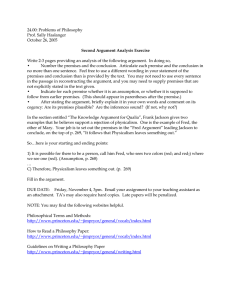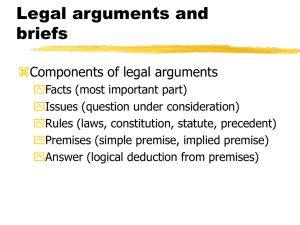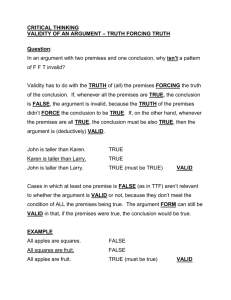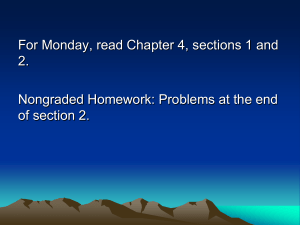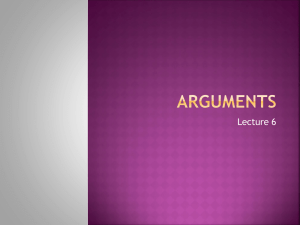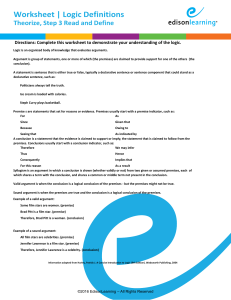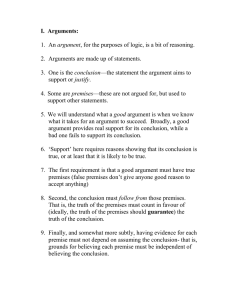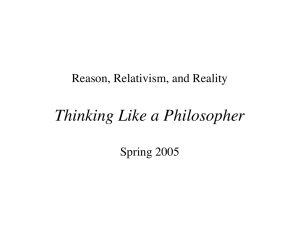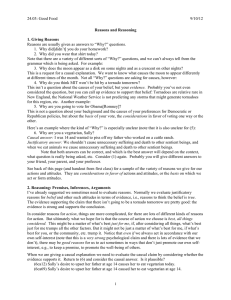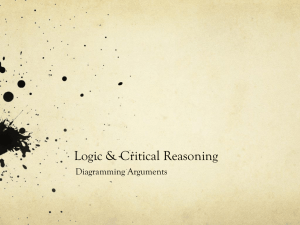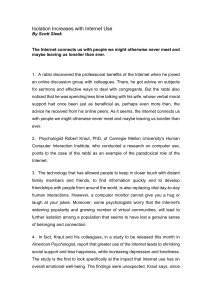24.02 Moral Problems and the Good Life MIT OpenCourseWare .
advertisement
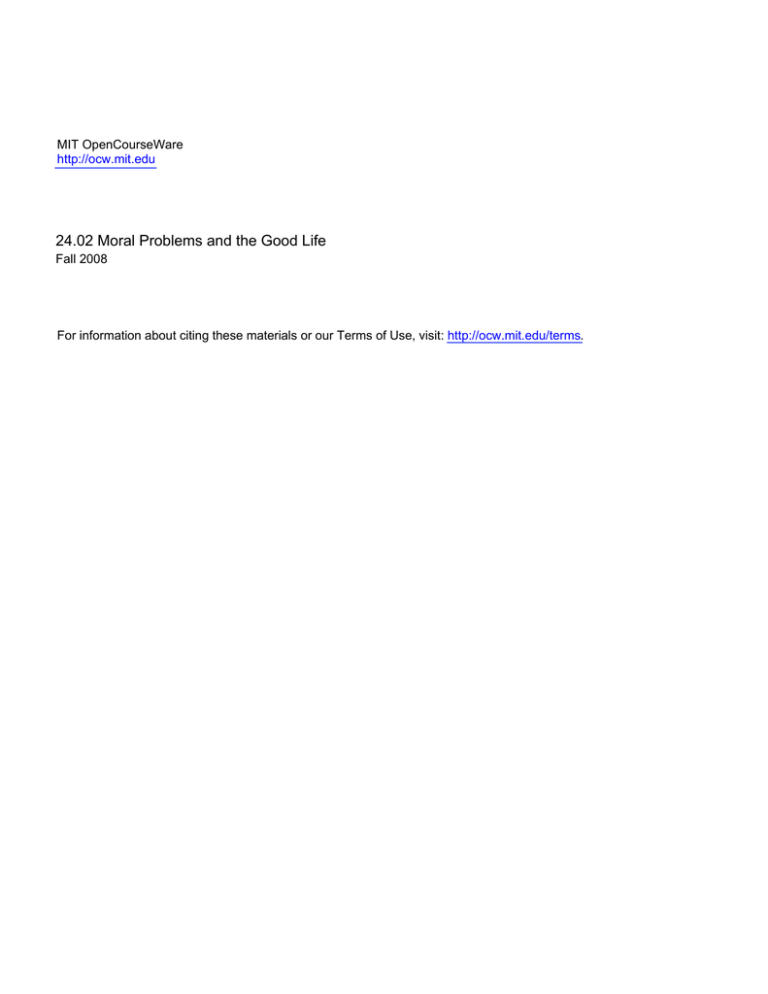
MIT OpenCourseWare http://ocw.mit.edu 24.02 Moral Problems and the Good Life Fall 2008 For information about citing these materials or our Terms of Use, visit: http://ocw.mit.edu/terms. First Argument Analysis Exercise Write 2-3 pages providing an analysis of the following argument in Richard Kraut’s essay “Desire and the Human Good.” In doing so, • Number the premises and the conclusion. Articulate each premise and the conclusion in no more than one sentence. Feel free to use a different wording in your statement of the premises and conclusion than is provided by the text. You may not need to use every sentence in the passage in reconstructing the argument, and you may need to supply premises that are not explicitly stated in the text given. (Note that in this passage, Kraut is presupposing conclusions he has argued for elsewhere in the essay. You need not analyze his arguments for these claims, e.g., that “satisfying our whims and urges is good.” Rather, your task is to show how he uses these claims to reach a conclusion about pain.) • Indicate for each premise whether it is an assumption, or whether it is supposed to follow from earlier premises. (This should appear in parentheses after the premise.) • After stating the argument, briefly explain it in your own words, and then comment on its cogency: Are its premises plausible? Are the inferences sound? (If not, why not?) Perhaps I can create some doubt about whether pain is intrinsically bad by calling attention to a number of other sensations that are disliked even though they are not physically painful: for example, foul odors and grating noises. Should we say that these are in themselves bad to experience, apart from the harm they typically bring about by distracting or annoying us? Suppose I am the only person who is repelled by a certain sound, and everyone else is indifferent to it: if we say that it is intrinsically bad for me but not for others to hear the sound, then we are presupposing that it is a person’s likes and dislikes that create what is good and bad for him. And we will then have to say that satisfying our whims and urges is good, and in particular, that it is good for the boy in our earlier example to hit the duck. On the other hand, if we say that a grating sound is bad for me to hear only if everyone else has the same response, then we have to explain why the reaction of others should be so important to my good. The most plausible way of disposing of this whole problem is to say that we should not infer from our aversion to something that it is contrary to our good, just as we should not infer from the presence of an urge that it does some good to satisfy it. If we accept this proposal, then we should become doubtful about the intrinsic badness of pain. (Kraut, 46) DUE DATE: SES # 4. Late papers will be penalized. You may find it helpful to check out this website on critical thinking to help identify arguments: http://philosophy.hku.hk/think/arg/arg.php This site (part of the same project) characterizes a number of valid argument forms: http://philosophy.hku.hk/think/arg/valid2.php In particular, note: A03.5: Disjunctive syllogism A03.7: Reductio ad absurdum

